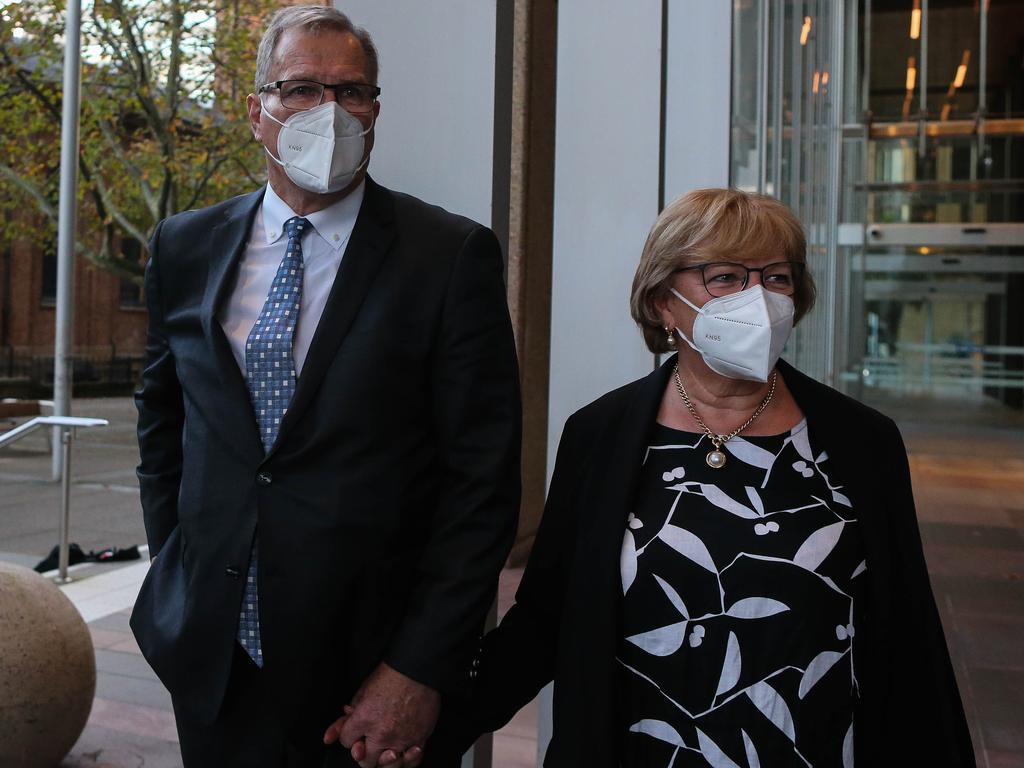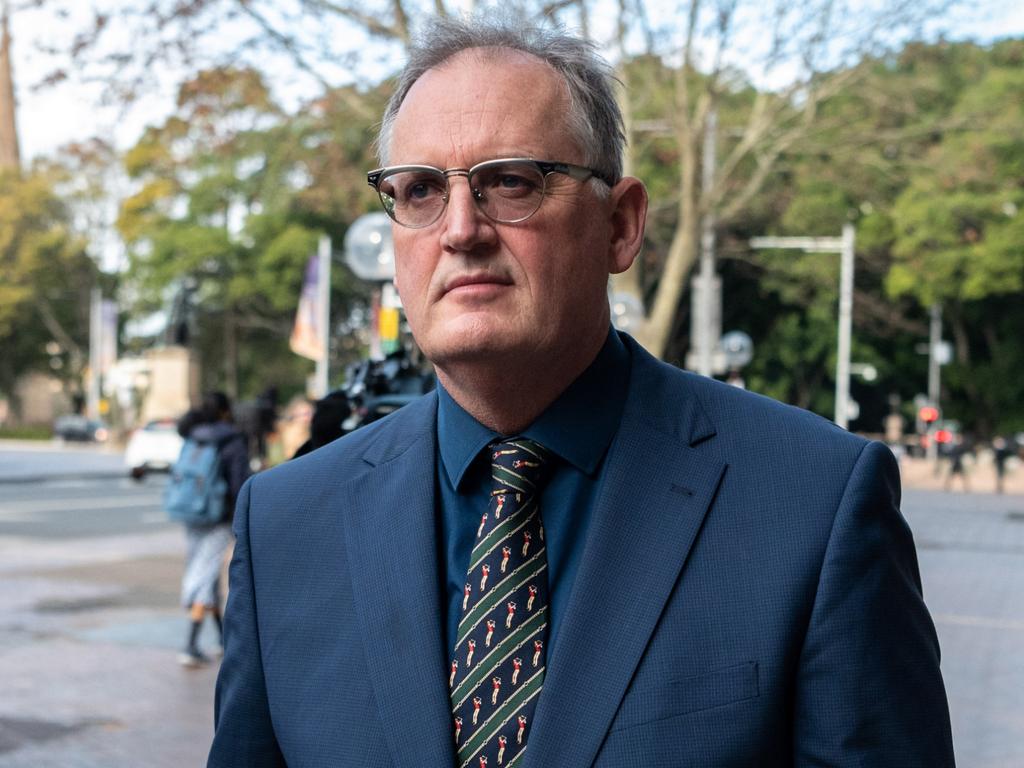Chris Dawson trial: Podcast was not a Hollywood pet project
Journalist Hedley Thomas fiercely rejects suggestions he sought to ‘poison’ the evidence of witnesses at former teacher Chris Dawson’s trial.
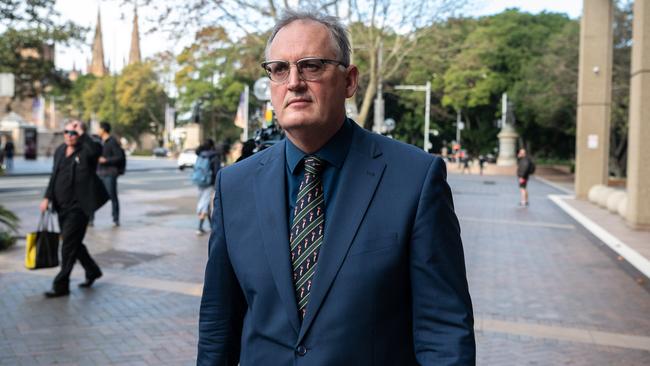
Journalist Hedley Thomas has fiercely rejected suggestions he sought to “poison” the evidence of witnesses at former teacher Chris Dawson’s trial for the alleged murder of his wife Lynette.
Thomas spent his second and final day in the witness box rebutting questions from the defence that suggested he tried to influence people against Mr Dawson, and that he had invoked Hollywood interest and the name of actor Hugh Jackman to encourage sources to speak to him.
Thomas said those who spoke to him for his 2018 podcast The Teacher’s Pet were intelligent people who had their own thoughts.
Defence counsel Pauline David put it to him that he was aware one woman he spoke to for the series was a witness.
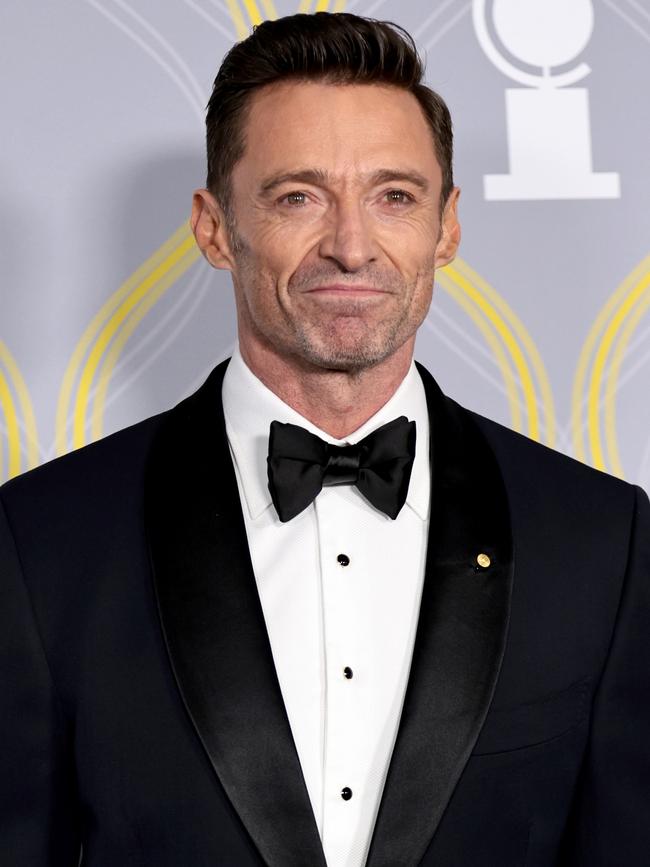
“There was no proceeding. How could she be a witness?” Thomas said.
On a day of high drama that also saw references to colourful Sydney identity Geoffrey Edelsten, religious cults and people speaking in tongues, it became clear how the prosecution was framing the motive for murder.
Prosecutor Craig Everson SC said in legal argument that Mr Dawson had three “coexistent” motives. “One of them was to get rid of Lynette Dawson. The second was to bring in (Mr Dawson’s former student and second wife JC).” The third was to avoid the ¬financial consequences of going through a divorce, Mr Everson said.
When Thomas resumed his evidence on Tuesday, Ms David put it to him that he “held out” the possibility of being involved in a TV mini-series or film production to witnesses. “That would be attractive to them,” she suggested.
Thomas: “Possibly to some. It might have been very unattract¬ive to others who were introverted or didn’t want to be involved.”
When Thomas told the court he had “no power” to entice witnesses with the prospect of a TV series, judge Ian Harrison SC asked whether the suggested inducements to witnesses at the trial could have been either “real or imagined”.
Thomas: “It was impossible, Your Honour. They had already spoken many years earlier, most of them, and then in the podcast, months before any movie or TV series was even discussed.”
The court was told one witness, a schoolboy in 1982, contacted Thomas after the podcast’s release. The witness, known as PS because of his age at the time of the alleged murder, was unsure whether he would be interviewed.
Ms David: “What I’m suggesting to you is that you sought to persuade him by utilising, by talking about, Hugh Jackman and the deals that you had.”
Thomas said he had not held this out as an inducement and it was unclear at any stage if screen adaptations would ever happen.
Ms David put it Thomas that he was aware another woman he spoke to, Mr Dawson’s friend Robyn Warren, had provided a statement to police.
Thomas: “Sixteen years earlier, yes.”
Thomas agreed he was aware a brief of evidence had gone to the NSW Director of Public Prosecutions in April 2018.
The Teacher’s Pet podcast launched the next month.
“I was aware it was the fifth brief of evidence over two decades,” he said.
Ms David suggested Thomas was trying to “poison” the minds of people against Mr Dawson so that they would try harder in their evidence against him.
Thomas: “No. These were intelligent people with their own independent minds.”
A portion of a call between Thomas and a retired Family Court judge, Brian Jordan, was played to the court.
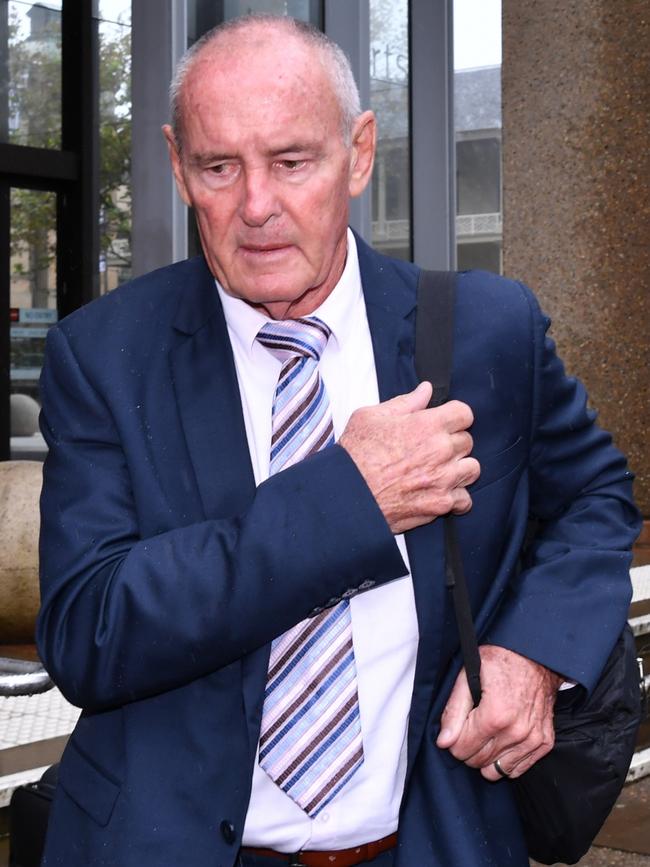
Mr Jordan said in the call that in the event of a trial, defence counsel would stress a jury shouldn’t be diverted from concentrating on tangible evidence.
“Many people who behave badly should not be regarded as capable of heinous crimes simply because a jury doesn’t like what they’ve done in general life,” he said.
There was a burst of laughter in the call when Thomas quipped: “That f..kin’ bit’s not going to make it.”
In the call, Thomas added the comments were “good actually” and provided a measured and coherent view.
Ms David asked Thomas if “that bit” made it into the podcast.
Thomas said it did “in another form” because he decided to organise a senior criminal defence lawyer and former District Court of Queensland judge to prepare a defence for Mr Dawson that was published in the podcast.
Those views were presented through an actor. “I knew that was coming and would be much more powerful,” Thomas said. “It was an exposition from a lawyer who had previously defended Ivan Milat at (his) murder trial.”
Ms David suggested Thomas included the defence of Mr Dawson in an attempt to prepare witnesses for a future potential trial.
Thomas rejected this, saying it was put in after Mr Dawson declined multiple opportunities for an unedited interview.
Justice Harrison said he took it that Thomas was saying he included the comments for balance.
“Yes, Your Honour,” he said.
The court was told police received information Lyn may have worked with Dr Edelsten, but lead detective Daniel Poole, the crown’s final witness, said checks confirmed Dr Edelsten didn’t know Lyn.
The defence wants a new witness to give evidence about religious cults at the time of Lyn’s disappearance, featuring people speaking in tongues. Justice Harrison’s preliminary view was that he agreed with the crown that the material was irrelevant.

